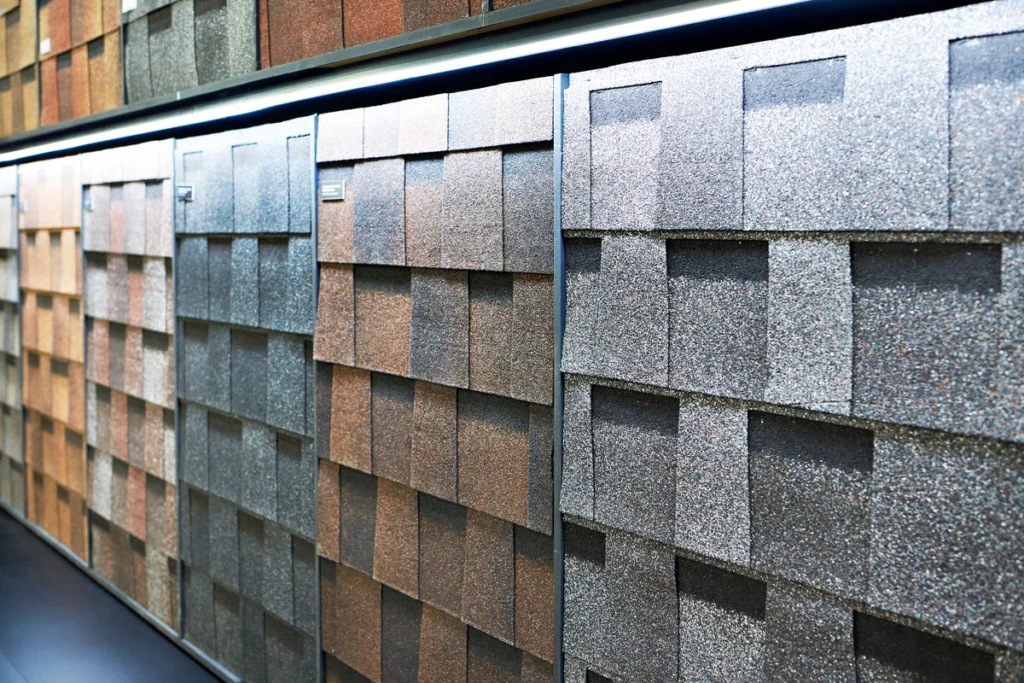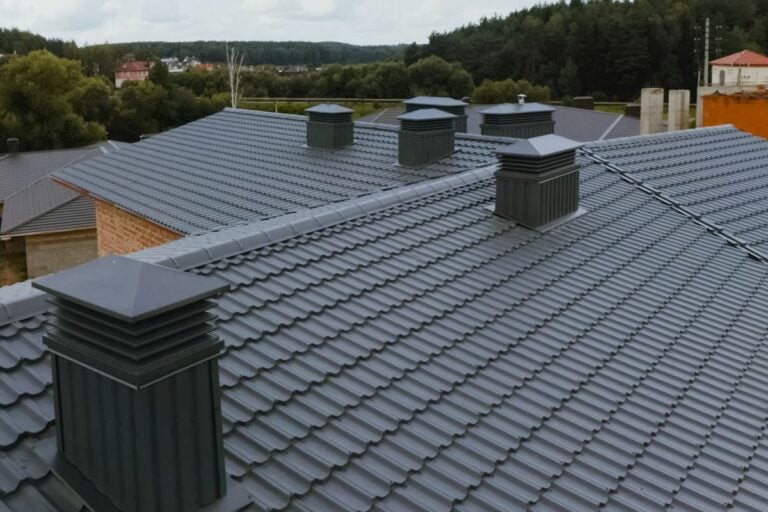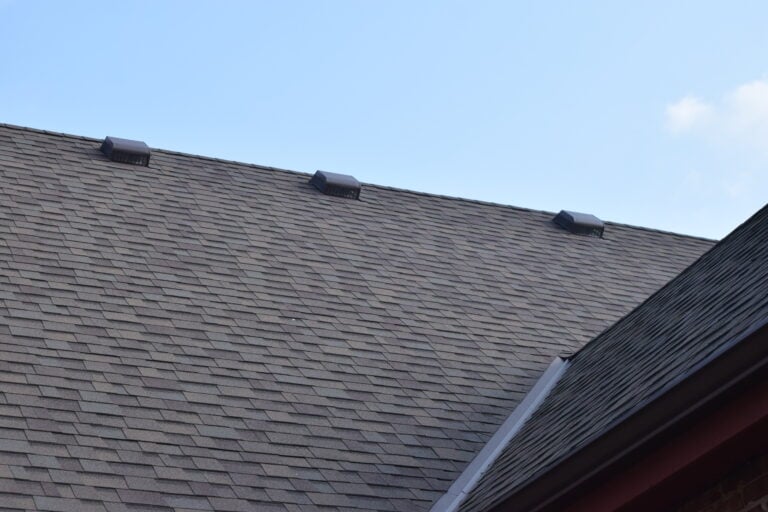When it comes to choosing the right roof for your home, your two most common options are asphalt shingles and composite shingles. But what’s the difference between the two? And more importantly, which one is the best choice for your needs?This article will help you compare asphalt vs composite shingles by breaking down:
- Asphalt and composite shingles: what you need to know
- Detailed differences, including a numbered list to clarify key points
- How to choose the best shingles for your home
🧠 Asphalt and Composite Shingles: What You Need to Know

When it comes to roofing materials, asphalt and composite shingles are two popular choices that offer distinct benefits.
Asphalt shingles are widely used across the United States thanks to their affordability and ease of installation. Made from a base of fiberglass or organic material coated with asphalt for durability, they also feature mineral granules on the surface for added protection and color. Asphalt shingles are budget-friendly, easy to find, and come in a variety of styles, colors, and textures. They are simple for local roofing contractors to install and typically last around 20–30 years with proper maintenance, making them a reliable choice for homeowners looking for value and versatility.
Composite shingles, also known as synthetic shingles, are designed to mimic the appearance of natural materials like wood or slate while providing modern durability. Made from a blend of materials such as asphalt, fiberglass, resin, and sometimes recycled components, composite shingles are highly durable and resistant to extreme weather. They are lightweight, visually appealing, and can last 30–50 years. Some brands even offer environmentally friendly options by using recycled materials, making them a sustainable choice for those wanting a high-end look with long-lasting performance.
Key Takeaways:
- Asphalt Shingles:
- Affordable and widely available.
- Easy to install and maintain.
- Lasts 20–30 years with proper care.
- Composite Shingles:
- Mimics natural materials like wood or slate.
- Extremely durable and weather-resistant.
- Long lifespan of 30–50 years.
- Eco-friendly options available with some brands.
⚖️ 6 Key Differences Between Asphalt and Composite Shingles

Here are some specific areas where asphalt vs composite shingles differ. These points will help you decide which makes more sense for your home:
1. Cost
Asphalt shingles are often the go-to option for homeowners on a budget due to their affordability. They are generally less expensive to purchase and install compared to composite shingles, making them a popular choice for those looking to save on upfront costs. However, while asphalt shingles are a cost-effective option initially, they may require more frequent replacements and repairs over time, which can increase their overall cost in the long run.
In contrast, composite shingles require a higher upfront investment, but their durability and longevity offer better long-term value. Although the initial price tag may deter some, many homeowners find that the reduced maintenance and extended lifespan of composite shingles make them a worthwhile investment over time.
2. Durability
When it comes to durability, asphalt shingles often fall short compared to composite shingles. Asphalt shingles are more prone to wear and tear, particularly in extreme weather conditions such as hailstorms, high winds, and heavy rainfall. Over time, they are more likely to crack, curl, or lose granules, which can lead to leaks and the need for repairs. This makes them less ideal for areas with harsh or unpredictable climates.
Composite shingles, on the other hand, are designed with durability in mind. Thanks to advanced engineering and high-quality materials, they are resistant to damage from severe weather. Whether it’s hail, strong winds, or heavy rain, composite shingles hold up far better against the elements, offering homeowners peace of mind. This enhanced durability also helps reduce the need for frequent repairs or replacements, making them a reliable choice for long-term use.
3. Lifespan
The lifespan of asphalt shingles typically ranges from 20 to 30 years, assuming they are installed properly and maintained regularly. While this is a reasonable lifespan for most roofing materials, it does mean that homeowners may need to replace their asphalt shingles once or even twice during their time in a home, depending on how long they stay. Factors such as poor weather conditions or lack of upkeep can further reduce their lifespan, leading to additional expenses.
Composite shingles, by comparison, boast an impressive lifespan of 30 to 50 years. This extended longevity is due to the superior materials and advanced manufacturing techniques used in their production. Because they are more resistant to damage and wear, composite shingles can easily last decades with minimal maintenance, making them an excellent option for homeowners looking for a long-lasting roofing solution.
4. Aesthetic Options
Asphalt shingles are available in a variety of colors and basic design options, making it easy for homeowners to find something that suits their preferences. However, their appearance tends to be more standard and lacks the luxurious look of high-end materials like slate or wood shakes. For those who prioritize affordability over design, asphalt shingles can still provide a visually appealing roof, but the aesthetic options may feel limited.
Composite shingles, on the other hand, are known for their premium appearance and versatility. They are engineered to replicate the look of luxury materials such as cedar shakes or slate tiles, offering an upscale finish without the high cost and maintenance associated with those materials. With a wide range of colors, textures, and designs available, composite shingles allow homeowners to customize their roof to achieve a high-end aesthetic that complements their home’s architecture.
5. Environmental Impact
Asphalt shingles can have a significant environmental impact, especially since many of them end up in landfills after they are replaced. While some types of asphalt shingles can be recycled, the recycling process is not always widely available, and a large percentage still contributes to waste. This makes them a less eco-friendly option, particularly for homeowners looking to reduce their environmental footprint.
Composite shingles, in contrast, are often made with recycled materials, which gives them a more sustainable edge. Their long lifespan also means fewer replacements, reducing waste over time. Additionally, some manufacturers prioritize environmentally conscious production processes, making composite shingles a better choice for those seeking a greener roofing option.
6. Maintenance
Asphalt shingles require regular maintenance to ensure they remain in good condition. Over time, they may develop cracks, lose granules, or experience curling, all of which can lead to leaks or other issues. Regular inspections are necessary to identify and address these problems early, and repairs may be needed more frequently compared to other roofing materials. For homeowners who don’t mind keeping up with maintenance, asphalt shingles can still be a viable option, but the upkeep is something to consider.
Composite shingles, however, demand much less maintenance thanks to their enhanced durability and resistance to damage. They are less likely to crack, warp, or experience significant wear, even in harsh weather conditions. This low-maintenance quality makes them an appealing option for homeowners who prefer a roof they can install and largely forget about. While occasional inspections are still recommended, composite shingles provide a hassle-free roofing solution that requires minimal effort to maintain.
🏠 Choosing the Right Roofing Material for Your Home

When deciding between asphalt and composite shingles, it’s important to consider your priorities. If you’re looking for a budget-friendly roof that gets the job done, asphalt shingles are a reliable and economical choice. They are a popular option for homeowners who want affordability without compromising on performance.
For those seeking a premium look with long-term durability, composite shingles are an excellent choice. Although they come with a higher upfront cost, they offer lasting value and can enhance the overall appeal of your home. Their resilience and aesthetic appeal make them ideal for homeowners planning to invest in quality.
Beyond cost and durability, it’s essential to factor in your local climate, the aesthetic you’re aiming for, and how long you plan to stay in your home. These considerations can significantly influence which roofing material is the better fit for your needs.
⭐️ Comparing Asphalt and Composite Shingles
Choosing between asphalt and composite shingles is an important decision, but having the right team on your side makes it easier. At Palladium Roofing, we combine industry expertise, high-quality materials, and a customer-first approach to deliver roofing solutions you can count on.
Whether you prioritize durability, aesthetics, or budget, our team will guide you every step of the way to ensure your roof meets your unique needs. Ready to get started?
Contact Palladium Roofing today for a complimentary roof inspection and see why homeowners in Oklahoma trust us to protect their homes.





